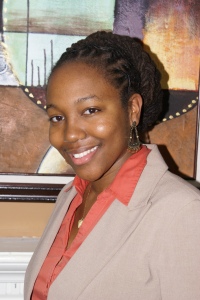News
New outbreak, old wounds for Liberians at home and in the U.S.
Yolanda Covington-Ward MN ’01 reframes the suffering of Ebola
This story appeared in our Fall 2014 newsletter. To view the full newsletter online, click here.
It’s been over a decade since the end of Liberia’s last bloody and devastating conflict, but this fall, for some Liberian immigrants in the United States, a ringing phone brings it all back, says Yolanda Covington-Ward, a 2001 Mellon Fellow in Humanistic Studies at the Woodrow Wilson National Fellowship Foundation.
As of December 2014, Liberia is the country hardest hit by Africa’s recent Ebola outbreak, with nearly 3,155* of the 6,055** deaths recorded to date.
“For Liberians living outside of Liberia, having to understand and engage with Ebola more passively—through the telephone or the Internet—reminds them of the war,” Dr. Covington-Ward says. “There was the same sense of helplessness. When you got phone calls, you were never sure if it was someone calling to tell you someone had died.”
The Ebola outbreak touches the rawness of those memories, says the University of Pittsburgh anthropologist and professor of Africana studies. Her scholarly work focuses on performance, the body, and embodied knowledge in social interactions among Liberians residing in the United States. Personal connections, however, give her a stark and powerful perspective: her husband is Liberian, and his family members live both in the U.S. and in Liberia.
The two civil wars fought in the West African nation between 1989 and 2003 displaced a quarter of a million people and killed another three-quarters of a million, a total of half of Liberia’s population at the outset. Liberians, Dr. Covington-Ward explains, were left not only with the grief and loss of the human aftermath, but also with deeply damaged infrastructure, and an even more damaged trust in the government and government services.
“The governments of Samuel K. Doe and Charles Taylor were governments that could kill you, that could kill your entire family,” she says. “And the larger potential for state violence extended into the health sector. In conversation I’ve heard people in Liberia talk about the testing of vaccines and other kinds of medical products on African bodies, which did happen.”
Given those memories, many Liberians had doubts about early reports of the outbreak. “When Ebola did emerge, people were questioning it, and some still do—whether Ebola really existed, or whether it was a ploy to control people or to get more money. If what you have in your mind is that the state is not necessarily there to help you and may lead to your demise, that’s a really deep mistrust that’s hard to get by. The whole relationship between the state and citizens really needs to be remedied first before people will even accept information or let health care workers in.”
After 14 years of civil war, Liberian communities in both Africa and the U.S. are wondering, she says, when the bad news will end. “There’s this overall sense that Liberia continues to suffer, and people continue to say this in many different ways,” Dr. Covington-Ward says. “Just as Liberia was starting to get itself together, here comes Ebola.”
Some of the greatest sorrows of the Ebola outbreak for Liberians outside Liberia, however, are much more personal. In too many cases, it is not possible to know how friends and family are, what has been done with the bodies of the deceased, or whether there has been any dignity in their passing.
“My mother-in-law lost two of her brothers in two weeks’ time, just recently,” Dr. Covington-Ward says. “The question of whether or not it was Ebola is not clearly answered because of the stigma that still exists. One of her brothers died very suddenly; they found him dead in his room. The other complained of stomach pains and died suddenly. Both were buried in the same manner, because now all deaths are basically treated in the same way, as if Ebola were present. Since there was no warning, there were no funeral rites for them. And that’s not the end of it: Her second brother was buried in a mass grave, with other bodies.
“So her mourning is not just because it was so sudden, but because, when she goes back to Liberia, she won’t even necessarily know where he’s buried, or in what part of the mass grave, if she can find it.”
The sadness, she adds, brings back her mother-in-law’s similar experience of losing her mother—also buried in a mass grave during the civil war. “Her continuous pain is about not being able to pay her respects to them when she finally does go back home.”
What matters most for observers elsewhere in the world, Dr. Covington-Ward emphasizes, is keeping the humanity of the Ebola victims and their friends and family in both countries in focus. “The perception on this side seems to be that this is once again Africans being irrational, this is once again Africans not being able to manage. The media tend to focus on all the negatives—there’s a lack of respect for life. We see dead African bodies, but we don’t see the crying, the tenderness, the worry, the attempts to help neighbors and others. People are still putting their own lives at risk.
“You wonder what the coverage would look like if the outbreak were happening in Southern Europe, or someplace where people on this side of the Atlantic view the inhabitants as more human.”
###
*CDC figure as of December 4, 2014
**WHO figure as of December 3, 2014


